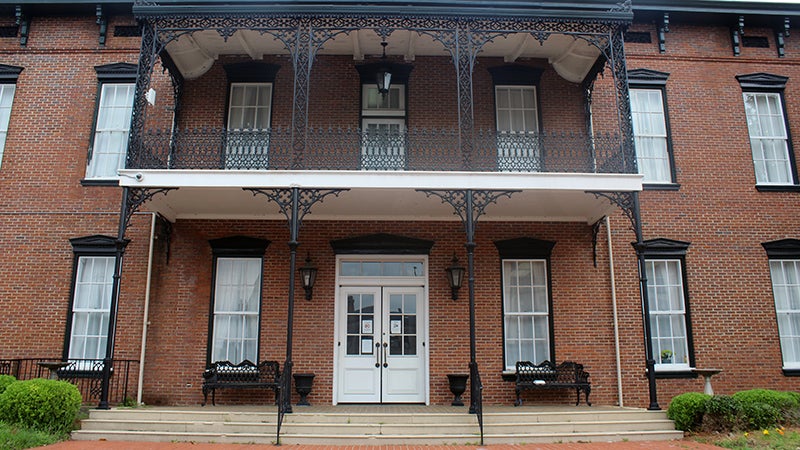Davis announces run for governor
Published 1:38 pm Friday, February 6, 2009
U.S. Rep. Artur Davis, an early supporter of Barack Obama with uncanny similarities to the new president, announced his Democratic candidacy for governor Friday in a bid to become the first black to win Alabama’s top office.
Davis, a Harvard-educated lawyer in his 40s like Obama, ended months of speculation with his announcement, attended by a crowd of at least 100 people, made up largely of whites. That voting bloc will be crucial for Davis to win in 2010.
“I will not promise you this path will be easy,” said Davis, 41, who chaired Obama’s campaign in Alabama.
“Yes, this will be hard, but if find our way, we can build a state like we have never known, not at some distant point called one day, but right now, in our season,” he said.
Davis has more than $1.1 million in his congressional campaign account that he can use for his gubernatorial bid.
He will face a Democratic field that’s likely to include Lt. Gov. Jim Folsom Jr., who served a partial term as governor during the early 1990s, and possibly Ron Sparks, Alabama’s agriculture commissioner. Both are white.
Like the new president, Davis overcame long odds to make it in politics. He was raised in Montgomery by a single mother and grandmother yet went on to graduate from Harvard University’s law school, where he met Obama.
A skilled orator, Davis upset a black incumbent to win Alabama’s 7th Congressional District. He has either won easily or had no opposition in re-elections to the mostly black district, which extends from Birmingham to rural west Alabama. He has styled himself as a moderate pragmatist who looks out for the needy in his district, but also has business interests in mind.
Republican Gov. Bob Riley is barred from seeking a third term. The GOP race to succeed Riley is expected to more crowded than the Democratic contest.
Davis can’t win unless he attracts large numbers of white supporters in a state where, in a 2000 referendum, 40 percent of voters opposed ending a constitutional ban on mixed-race marriage.
Exit polls in November showed Obama got fewer than 20 percent of the white vote. Republican John McCain easily won the state.
Voter registration among blacks than whites grew before the Nov. 4 election, but whites still make up almost three-quarters of registered voters in Alabama, which is about 70 percent white.
In last year’s Democratic presidential primary, about half of those voting were black. If he wins the party nomination, he would still need nearly all the black vote and about 40 percent of the white vote in the general election.
“That has been very difficult for even white Democratic candidates in recent election cycles,” said Jess Brown, a political scientist at Athens State University in northern Alabama.
Blacks hold scores of local offices and make up about 25 percent of each chamber in the Alabama Legislature, but no other minority candidate has previously had a real chance to win the governor’s office.
John L. Cashin, a black dentist, received almost 15 percent of the vote in 1970 running as the nominee of the National Democratic Party of Alabama, a mostly black alternative to the state Democratic Party, but he lost badly to segregationist George C. Wallace.
Wayne Sowell, a perennial Democratic candidate who is black, twice ran for governor in the 1990s but had little funding. Former NBA star Charles Barkley of Leeds has publicly discussed seeking the governor’s office for years but hasn’t actually run.
Davis is the first serious black candidate to seek the office, said William Stewart, a longtime political scientist at the University of Alabama.
“There is no precedent for what Congressman Davis is doing,” said Stewart.
“I don’t think we had a serious black candidate for governor during Reconstruction,” he said. “Once Reconstruction ended and white supremacy took hold, it was really not possible because blacks were pretty effectively removed from the political process.”
Polls for years have shown that a majority of Alabama voters say the state is ready for a black governor, but the presidential vote last year revealed an electorate deeply divided by race.
Exit polls showed about 90 percent of whites voted for Republican Sen. John McCain, and nearly all blacks voted for Obama. Stewart said that pattern could help Davis in the Democratic primary, but it could also be an obstacle in the general election.
Davis’ race already is an issue among some.
The Alabama Council of Conservative Citizens, which calls itself an equal rights group for whites, claims Davis is against white Christians because he used to work for the Montgomery-based Southern Poverty Law Center, which monitors and sues white supremacist groups.




